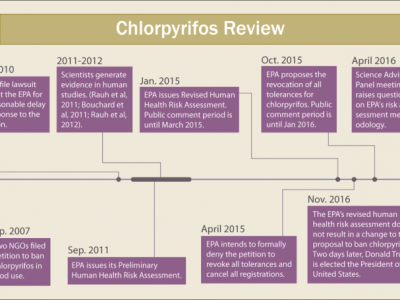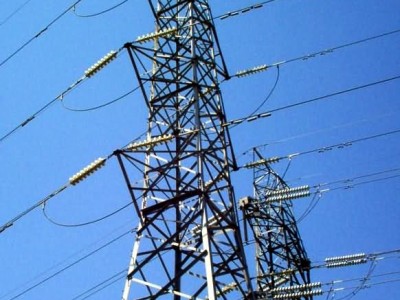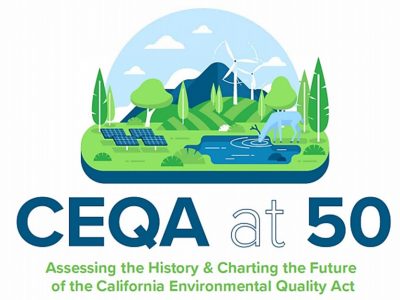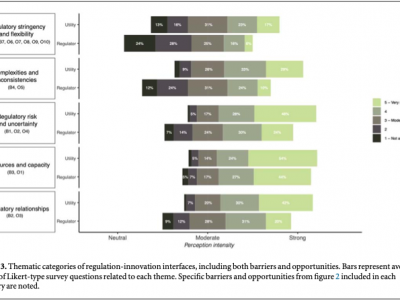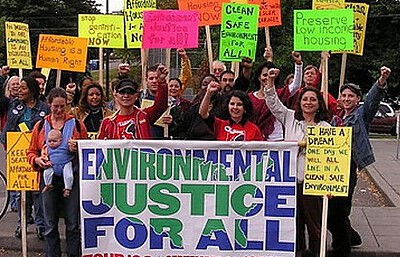Regulatory Policy
The Ninth Circuit Makes EPA an Offer It Can’t Refuse
Regulate chlorpyrifos or else!
Chlorpyrifos is one of the most widely used pesticides in America, although it has been banned in the EU. Last week, the Ninth Circuit took the extraordinary step of ordering EPA pointblank to ban or reduce traces of chlorpyrifos in food. A dissenter accused the majority of misreading the statute in question and abusing its …
Continue reading “The Ninth Circuit Makes EPA an Offer It Can’t Refuse”
CONTINUE READINGTime to End FERC’s Misguided Effort to Fix Wholesale Power Prices
A FERC ruling tilts the playing field against renewable energy. It should be repealed.
In 2018, the Federal Energy Regulatory Commission (FERC) decided that state clean energy policies were distorting energy markets operated by PJM, the country’s largest grid region. That, at least, was the view of the Commissioners who were appointed by Republican presidents. PJM, which runs the electricity grid more or less from Chicago to Maryland, has …
Continue reading “Time to End FERC’s Misguided Effort to Fix Wholesale Power Prices”
CONTINUE READINGBiden and the Environment: The First 100 Days
Biden has set up a lot of future actions. But he’s already got some notches on his belt.
Tomorrow marks Biden’s first 100 days in office. He’s appointed a great climate team and is negotiating an infrastructure bill that focuses on climate change. With luck, those actions will produce major environmental gains down the road. There are also some solid gains in the form of actions that have already come to fruition. Here’s …
Continue reading “Biden and the Environment: The First 100 Days”
CONTINUE READINGU.C. Davis School of Law Hosts “CEQA at 50” Conference on April 16th
Virtual Event Commemorates Past, Predicts Future of the California Environmental Quality Act
Now a half-century old, the California Environmental Quality Act (CEQA) remains California’s most important, cross-cutting and controversial environmental law. Originally patterned on the 1969 National Environmental Policy Act, CEQA has over the decades become a more powerful law than its federal counterpart. And while numerous other states have adopted their own “little NEPA” statutes, CEQA …
Continue reading “U.C. Davis School of Law Hosts “CEQA at 50” Conference on April 16th”
CONTINUE READINGDo regulators and utility managers have irreconcilable differences or mutual goals?
By Alida Cantor, Luke Sherman, Anita Milman, and Mike Kiparsky
Do regulators and utility managers have irreconcilable differences or mutual goals? By Alida Cantor, Luke Sherman, Anita Milman, and Mike Kiparsky. What do climate change, aging infrastructure, and urban population growth have in common? They all pose major challenges – especially for water infrastructure in the United States. And many utilities are having a …
CONTINUE READINGThe Nondelegation Doctrine and Its Threat to Environmental Law
Here’s what the doctrine means and why it has suddenly become so significant.
If you ask Supreme Court experts what keeps them up at night, the answer is likely to be the non-delegation doctrine. If you are among the 99.9% of Americans who’ve never heard of it, here’s an explainer of the doctrine and what the 6-3 Court might do with it. What’s the nondelegation doctrine? Simply put, …
Continue reading “The Nondelegation Doctrine and Its Threat to Environmental Law”
CONTINUE READINGA Preview: Major Property Rights Case Currently Before U.S. Supreme Court
Decision in Cedar Point Nursery Could Imperil Key Health, Safety & Environmental Programs
On Monday, the U.S. Supreme Court will hear oral arguments in a major property rights case from California: Cedar Point Nursery v. Hassid. That litigation arises in a labor law context. But, depending on how the Court rules, the case could have major, deleterious impacts on a wide array of health, safety and environmental programs. …
Continue reading “A Preview: Major Property Rights Case Currently Before U.S. Supreme Court”
CONTINUE READINGDeconstructing the Supreme Court’s First Environmental Law Decision of the Year (Sort Of)…
…And Newly-Arrived Justice Barrett’s First Majority Opinion
Earlier this month, the U.S. Supreme Court issued its first environmental law-related decision of its current Term–U.S. Fish and Wildlife Service v. Sierra Club. I say “environmental law-related” because the heart of the case concerns whether certain federal government documents are disclosable to the public under the Freedom of Information Act (FOIA). But the case …
CONTINUE READINGPerspectives on Inequality and the Environment
Environmental action has become linked to the fight against inequality. But there are different visions of this linkage.
Equality concerns have loomed large in American thought for at least the past decade, exemplified by demonstrations against “the one percent” and the Black Lives Matter movement. These concerns have also moved toward center stage in environmental law. This has been a major shift in emphasis that seems likely to reshape the meaning of environmentalism. …
Continue reading “Perspectives on Inequality and the Environment”
CONTINUE READINGGuest Contributor Aimee Barnes: How the Biden Administration’s Environmental Justice Mapping Tool Can Identify and Target Benefits to Disadvantaged Communities
Lessons Learned From CalEnviroScreen
Just one week after his inauguration, President Joe Biden designated January 27 “Climate Day” at the White House and signed a number of executive orders, including one aimed to “secure environmental justice (EJ) and spur economic opportunity.” Under this executive order, President Biden took the first steps to make good on his campaign’s EJ commitments. …
CONTINUE READING



